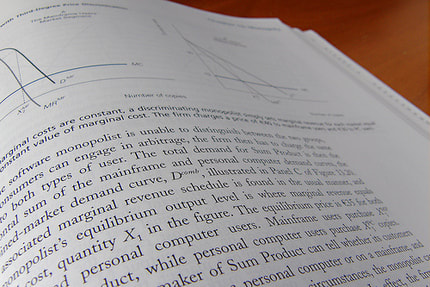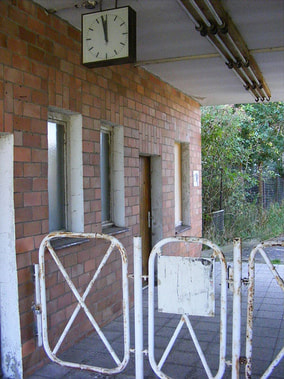|
Originally published on the Sustaining Time blog, part of an AHRC funded project which asks the question: What would be the time of a sustainable economy?  Economics by Mark Wainwright (CC BY 2.0) Economics by Mark Wainwright (CC BY 2.0) It’s been a little while now since we’ve put up a new post on this project and I can’t help but feel the irony of not having enough time to devote to a project that is exploring the possibility of developing more sustainable relationships to time. But as perhaps many others have found, your projects never really forget about you. They keep calling to you, cutting through all your busyness and eventually reeling you back in. So to get back into the swing of things, I wanted to revisit some of the core questions that first inspired the project. Starting off with the most obvious perhaps: Why might a focus on time be important for understanding how to shift to more sustainable economies? The perfect storm of multiple crises, including climate change, the peaking in supply of a whole range of key resources, as well as the astounding inequality fostered by current economic systems, have turned many towards developing and implementing alternative approaches. Challenging the philosophical basis of conventional economic theories has been an explicit aspect of this. As a result, the dominant paradigms of neoclassical economics are, at best, seen as being comprised of naive assumptions that fail to capture the complexity of human interdependencies on each other and on the environment. All around us, the dominant stories of how people interact with each other and the kinds of incentives and rewards they respond to are shifting. Instead of competitive self-interested units, we are more generous, more co-operative and more complex than main-stream economists give us credit for. The structure and characteristics of the web woven between the human and non-human, between the biological, the mineral and the elemental are being questioned and described in new ways. Gift-based economies, the new commons, cooperation, abundance instead of scarcity and distributed networks are just a few examples.  Bestwood factory entrance by Sludge G (CC BY-SA 2.0) Bestwood factory entrance by Sludge G (CC BY-SA 2.0) How might time fit into this then? If time is just an objective flow that we measure, then it has about as much to do with economics as π (pi) does. It’s an unchangeable constant that we just need to live with. But what if this story about time is as much of a distortion as the story about ‘economic man’? What if time is also more complex, more interconnected and more dependent on social webs than we’re usually taught? That like the maps that tell us stories about space, our clocks are not simply telling us ‘the time’ but are telling stories about time that are cultural, political and partial? What if time is tied to our webs of relations in such a way that when these webs change so does time? There is already research that suggests that broadly speaking different economic systems seem to be associated with different approaches to time. For example, pre-industrial societies with task oriented time, industrial capitalism with an intensification of clock-time and late capitalism with speed and acceleration. And if we look for further clues within alternative economics, new sustainable times come tantalisingly into view. Steady-state futures or degrowth displace stories of the progressive arrow of time. Movements like Slow Food, Permaculture or Transition are making deliberate attempts to redesign everyday life around slower tempos and complexity-based models of social change. This suggests that social change doesn’t only happen in time, but happens through changes to time itself. The aim of this project then is try see if we can make some of these shifts in time more visible and more intelligible. But in going about this, we are making the following assumptions which make things more complicated:
Comments are closed.
|
Archives
November 2022
Categories
All
|
 RSS Feed
RSS Feed
